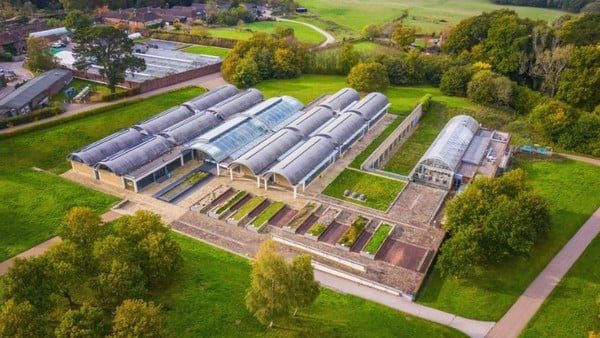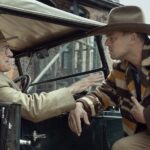Global Courant 2023-05-21 17:13:31
The vaults are underground, in the middle of the English countryside, at a temperature of 20º below zero. They can withstand floods and bombardments and keep a treasure made up of the seeds of 40,000 wild plants from all over the world, many of them in danger of extinction.
The Millennium Seed Bank (MSB) is in a race against time because, according to scientists, two out of five plant species on the planet are at risk of disappearing.
This center, located south of London, is the largest seed bank in the world.
Dr. John Dickie, head of the project (AFP).
In the opinion of biologist David Attenborough, a well-known figure in the UK, the MSB is “perhaps the most important conservation initiative ever undertaken”.
“The goal is to conserve wild species through seeds, to prevent them from going extinct in the long term,” explains John Dickie, project manager.
This 70-year-old researcher has been involved in the MSB since its creation in the late 1990s.
Seeds of 40,000 wild plants are saved, many in danger of extinction (AFP).
It opened in 2000 to celebrate the millennium and is located in Wakehurst, a branch of London’s Kew Gardens.
There are 2.5 billion seeds
Some 2.5 billion seeds are stored here. They come in all shapes, colors and sizes. They belong to 40,020 different species and come from 190 countries. They represent almost 20% of the world flora.
Priority is given to plants threatened, especially by climate change. But also endemic plants, which can only be found in a specific geographical area.
The underground vaults are at a temperature of 20º below zero (AFP).
Plants that are medically or economically useful to communities also have their place in Wakehurst.
“Plant species are threatened for a number of reasons, but above all because of land use change for agriculture and, increasingly, climate change,” Dickie explains.
“Some plants will adapt, some won’t,” but “at least they’ll be here, instead of disappearing altogether,” he adds.
Every week Wakehurst receives new seeds and begins the process of saving them.
Some 2,500 million seeds (AFP) are stored.
“Our conservation of wild species builds on technology already used for farmed species,” Dickie explains. “It’s not complicated: they are dried, cleaned and frozen.”
first, freeze them
Once frozen, the seeds can be stored for decades, possibly centuries, he says.
His team works in full view of the public in his glass-enclosed laboratory in Wakehurst. There are about 20 researchers and some volunteers.
Lucy Taylor treats Albizia polyphylla seeds from Madagascar.
There are seeds of all shapes, colors and sizes (AFP).
“Madagascar is a very interesting place for biologists because it has a unique flora, since the island broke away from Africa. Also, there is a lot of pressure on the ground” due to agriculture, he explains.
Patiently, he separates the bad seeds from the rest: “many are empty or infested with insects or diseases, but we want the best possible collection and we don’t have much space in our chambers.”
To detect diseases, the seeds are X-rayed.
Each has their own identity card, with their name, country of origin and date of arrival at the MSB.
They are stored in glass jars before being frozen in underground chambers, built to withstand flooding, bombing and radiation.
To detect diseases, the seeds are subjected to X-rays (AFP).
The temperature is -20ºC. Scientists enter them dressed as if they worked at a polar base.
Orchids are majority
The largest collection of seeds corresponds to the orchid family.
There are also rare plants, such as the world’s smallest water lily or the Antarctic deschampsia, also known as Antarctic hair grass, one of the two native flowering plants of the South Pole.
The MSB, which receives public funding and donations, collaborates with 90 countries.
The largest collection of seeds corresponds to the orchid family (AFP).
Some, like Indonesia, refuse to share their seeds with this institution, but keep them on their territory.
Others, however, seem out of reach: One of Dickie’s few regrets is not having exchanges with Iran.
AFP agency.
GML




